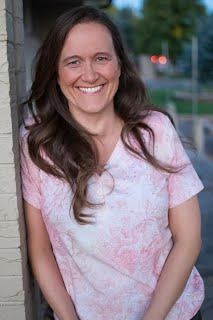Genre: Women’s Fiction
Author: Lynn Steward
Publisher: Lynn Steward Publishing
At the cutting edge of women’s fashion in the
1970s, a visionary young woman subdues her desire for love to remake
retail at New York’s most glamorous department store.
Newly single, Dana
McGarry learns she must divorce herself from more than a bad marriage to
succeed. Not only must she prove to family and friends that she can make it on
her own, but she also must challenge an antagonistic boss who keeps standing in
her way. Moving out of her comfort zone and into the arms of a dynamic
businessman, Dana bets it all on a daring new move that will advance her buying
career, But at what price?
Her dreams within
reach, Dana’s world is shattered in a New York minute when a life is
threatened, a secret is revealed, and her heart is broken.
PURCHASE THE NOVEL
Amazon
CHAPTER REVEAL
APRIL
SNOW
Chapter One
Dana McGarry, on
vacation for the first time as a single woman, arrived at the Lansdowne Club at
9 Fitzmaurice Place, just steps from Berkeley Square, in London’s fashionable
Mayfair on the morning of April 8, 1975. Her lawyer had filed papers for
a legal separation from her husband Brett in January, and after four months of
being under the watchful eyes of well-meaning family and friends, Dana was
savoring every moment of her solo trip across the pond. She and Brett had
always stayed at the nearby Chesterfield Hotel, but her beloved Colony Club in
New York City enjoyed reciprocity with the Lansdowne Club, where she’d
previously attended lunches and lectures while her husband met with clients for
his Wall Street law firm. Undeterred by the steady English rain and dark
clouds hanging over the slick gray streets, she stepped from one of London’s
fabled black taxis with renewed spirit, excited to think that the distinguished
house in Berkeley Square would be her home for the next five days.
After Dana checked in, the hall porter asked her if she would like tea brought
to her room and then discreetly disappeared with her luggage, a small,
welcoming gesture that stood in contrast to an impersonal hotel. Rather
than immediately taking the lift to her room on the fifth floor, Dana stepped into
the entrance hall and surveyed the club’s interior, intending to explore
Scottish architect Robert Adam’s stately masterpiece commissioned in 1761 for
King George III’s prime minister, the Earl of Bute. Previously, she had
limited herself to the dining room, never taking time to appreciate the club’s
historic beauty. Although rich with finely-crafted embellishments and
Neoclassical splendor, the house was clearly showing signs of fatigue, and its
understated elegance made the environment that much more comfortable.
Dana knew she’d made the right choice. The club was an oasis of tradition and
tranquility affording her the peace and privacy she needed.
When Dana arrived in
her junior suite, she noticed a bouquet of flowers sitting on a table in the
sitting area. Thinking they were compliments of the club, Dana opened the
attached note and laughed out loud. The flowers had been sent by her
childhood friend, Johnny Cirone. The message read, “Take Phoebe shopping
and buy up the town. Whatever you do, enjoy yourself. Love,
Johnny.”
Dr. Phoebe Cirone,
who was in London attending a cardiology convention, was Johnny’s sister.
Their father, John Cirone, known affectionately to Dana and her brother Matthew
as Uncle John, was the head of the House of Cirone, a manufacturer of ladies
eveningwear. Having a passion for medicine from an early age, Phoebe had
never expressed interest in clothes or haute couture, leaving Johnny to
reluctantly carry on family tradition by working for his father. Dana’s
parents, Phil and Virginia Martignetti, had been friends with the Cirones since
before her birth.
Dana, pleased to see
a porcelain tea service had already arrived, took her cup to the window and
sipped the Darjeeling as she observed the new plantings in the courtyard
garden. The peace she’d felt a few minutes ago was gone, however.
Something about Johnny’s note, as thoughtful as it was, unnerved her.
Johnny and her mother called daily to see how she was doing. Dana sensed
their concern, although she felt it was unwarranted. What did they
think—that she was going to kill herself because the divorce would soon be
final? They obviously didn’t recognize her personal strength and resolve.
Dana worked at New York City’s B. Altman, and the previous December she’d
formed the department store’s first Teen Advisory Board. She had also
succeeded in getting Ira Neimark, the store’s executive vice president, to sign
off on installing a teen makeup counter on the main selling floor over the
objections of Helen Kavanagh, junior buyer, who thought youth-oriented
strategies like those at London’s Biba, were a waste of time and money.
Despite these personal triumphs, she’d taken aggressive steps to
further advance her career, leaving her comfortable job in the marketing
department for the position of junior accessories buyer. She had
requested time off for this visit to London immediately after settling into the
new assignment, and that alone was proof that she knew how to take care of
herself.
Dana had been equally
aggressive in terminating her marriage to Brett. Papers for a legal
separation had been filed in January by Dana’s lawyer when she discovered that
Brett was having an affair with fellow litigator Janice Conlon, a saucy and
impertinent young woman from California. Negotiations for a final
settlement were proceeding smoothly, with no protests originating from either
Brett or his lawyer lest the firm be apprised of his misconduct with the
audacious Conlon. In the four months since their separation, Dana had
realized that Brett’s dalliance with the abrasive Conlon had merely been a
catalyst for the end of their relationship since there had been something far
deeper and more troubling in their marriage: Brett’s growing neglect of Dana as
he vigorously pursued partnership with the firm. His work always served
as a convenient excuse to pick and choose his time with Dana and in the long
run, that grim reality had proven intolerable. Within days of learning of
Brett’s infidelity, Dana contacted an attorney and moved from her Murray Hill
apartment to a carriage house a few blocks away in Sniffen Court.
Given the decisive
actions in her personal and professional life, Dana therefore felt smothered at
times by the daily concerns of others. As for her traveling abroad alone,
she felt more than competent to take care of herself. When Brett had been
with her in London, they were rarely together. He usually spent days
working, and evenings meeting with clients, joining Dana for late dinners, if
at all. He was up and out by 7:00 a.m. She’d always hoped that the
next trip would be better, but this was never the case. Traveling
alone? It was all she knew.
Yes, it had all
happened just four months ago, illustrating how the course of a life can change
so radically and quickly. But was she ecstatically happy now that a new
phase of her life and career had begun, with Brett being almost surgically
excised from the picture? No, she wasn’t jubilant about anything at
present, but she was content, at peace with the decisions she had made to take
care of herself and her future. In the words of her father, she had
discovered that she had “a very good life” despite longstanding marital woes
and formidable professional challenges. Many of her friends had urged her
to re-enter the dating scene since she was almost thirty and the clock was
ticking, but Dana didn’t miss married life in the least and had no interest
whatsoever in dating, especially guys described as the perfect match: upwardly
mobile professionals, or “Brett clones,” the apt description provided by Andrew
Ricci, Dana’s good friend and display director at the store. Besides,
marriage was not the only path to a fulfilled life. In Dana’s estimation,
happiness also resulted from pursuing a creative dream, enjoying good
friendships and the myriad interests that gave her immense pleasure, such as
travel, literature, films, and lectures on a wide variety of topics.
Being suddenly single was not a condition to be cured but rather an
opportunity to be savored.
A line from Dickens
came to mind as she thought of events that had altered her life: “It was
the best of times, it was the worst of times.” Dana had survived the
tumultuous weeks of the previous December, when she realized her marriage was
over, but surely this was now the best of times, was it not? She smiled
as she contemplated her walk tomorrow morning to Piccadilly for breakfast at
Fortnum & Mason, followed by a long and leisurely visit to Hatchards,
London’s oldest bookshop. The thought of Dickens reminded her of the
delight she took in finding rare editions of the classics, or even first
editions of lesser-known authors. Today, however, she was going to enjoy
Richoux’s delicious risotto when she lunched with Phoebe, who was staying
within walking distance at the Grosvenor House on Park Lane. Filled with
a new surge of energy, the blue-eyed Dana freshened up, brushed her short blond
hair, and grabbed a shawl and a pair of unlined leather gloves. The clouds were
beginning to part, and the steady English drizzle had let up, but it was still
a nippy fifty-four degrees—a perfect spring day in London.
Rays of sunshine were reflected by leaded
windows in the rows of eighteenth century townhomes Dana passed as she strolled
leisurely through Berkeley Square. It was only eleven thirty and she had
an hour before meeting Phoebe at her hotel, enough time for a short detour
across Hill Street and Hays Mews to the Farm Street Church, also known as the
Jesuit Church of the Immaculate Conception. Years earlier, she’d been
sitting on a bench in Mount Street Gardens when she looked up and beheld one of
the church’s open gothic portals that seemed so inviting, beckoning her to
enter and pray. Then as now, it had been a glorious April day, the kind
celebrated by Chaucer in the opening lines of theCanterbury Tales,
when spring rains provide rich “liquor” for flowers suffering winter’s drought.
Dana arrived at the
church and chose to enter from Mount Street Gardens rather than Farm Street, as
she’d done on her original visit. In the transept to the right of Our
Lady of Farm Street statue was the Sacred Heart Chapel, and this is where Dana
chose to pray in deference to the Sisters of the Sacred Heart, who’d taught her
for twelve years in her youth. She knelt in the third pew, said a decade
of the rosary, and then sat, looking up to admire, as she always did, the
glorious painting of the Sacred Heart flanked by four saints above an inlaid
marble altar with three brass reliefs. But instead of finding peace in
this pious setting, the silence suddenly became deafening, and the alabaster
walls of the chapel began to feel close, confining. A wave of emotion
engulfed her, and she cried uncontrollably, questioning her impulsive decision
to end her eight-year marriage—and without considering her vows taken before
God, family, and friends. What a hypocrite she felt herself to be—a selfish hypocrite
who had turned her back on the faith that was such an integral part of her
life.
Glancing at her
watch, Dana saw that it was almost noon. She needed to pull herself
together and be on her way to meet Phoebe. She took a deep breath, wiped
away her tears, and walked outside to a bench in Mount Street Gardens, where
she would spend a few moments composing herself.
In the sacristy, a priest was marking the
readings for the twelve-thirty mass in the gilt-edged lectionary when he heard
anguished sobs emanating from the Sacred Heart Chapel. Curious, he
stepped into the sanctuary in time to see a young woman exiting the side door
leading to the gardens. He followed her and observed her sitting on a
bench fifteen yards away. He folded his arms, closed his eyes, and said a
brief prayer.
*
*
*
Looking in her
compact mirror, Dana wiped away the mascara beneath her eyes and reapplied a
bit of powder to her cheeks. She didn’t want Phoebe to see that she’d
been crying. What could she possibly say in answer to any questions her
friend might have? That she was upset over the abrupt manner in which
she’d dissolved an eight-year marriage to an inattentive man who’d cheated on
her? No, the emotions that had spilled forth in the chapel had taken Dana
by surprise, and they needed to be processed in private moments of reflection.
Dana had been resting
her eyes when she looked up and saw a priest approaching the bench. The
Jesuit, a tall man in his early fifties, walked with a confident gait, and the
smile on his face was evident when he was still several feet away.
“Good morning,” he
said. “Lovely day.” He could tell the young woman was upset
and,
in point of fact, she wasn’t the only one he’d encountered on the grounds who
needed consolation or, at the very least, a friendly smile.
“Yes, Father, it is,”
Dana replied. “A splendid day.”
“Are you on holiday,
or are we blessed to have you as a new parishioner?” he asked.
Dana examined the
priest’s face more carefully. He wore rimless glasses, and pale blue eyes
regarded her kindly beneath close-cut salt and pepper hair. He was
dressed in a black clerical suit and looked to be strong and vigorous despite
his gentle manner.
“On holiday, Father,”
Dana replied. “I come here whenever I’m in London and wanted to stop in and . .
. visit. I was taught by the Sacred Heart sisters back in New York.”
“A New Yorker!”
Father Macaulay said. “And a member of the family, so to speak. May I
sit?” he asked, motioning to the bench.
A member of the family, Dana thought, again fighting back tears. Not anymore.
“I’m sorry, Father,”
Dana mumbled, rising to leave. “I’m meeting someone and I’m late.”
Father Macaulay
nodded. “I hope you’ll visit again. I’m here in the church or the
gardens every morning from nine until I say mass. If you can’t find me,
just tell the sacristan that you’re looking for Father Charles Macaulay.”
“Thank you,
Father. Have a good day.”
Biting her lip to
fight back fresh tears, Dana and Macaulay shook hands. The priest watched Dana
walk out of the gardens, sensing that she was in distress. He was a good
judge of people, and he thought that Dana would surely return to the church
before she boarded a plane for New York City. Somewhere in her soul, he
thought, there was unfinished business.
*
*
*
Wearing sunglasses,
Dana walked for five minutes along Mount Street until she reached the Grosvenor
House. Phoebe was waiting in the lounge, and after they exchanged warm
greetings, they left the hotel for Richoux, which was two blocks away on South
Audley Street.
The two women were shown to a small table in the
dimly-lit restaurant owing to the dark wood paneling in the main dining
room. When Dana removed her sunglasses, Phoebe immediately saw that Dana
was upset. Her eyes were puffy and her smile was forced. Phoebe
cocked her head and raised her eyebrows, as if to say, Do you feel like talking about it?
“I’m fine,” Dana said,
brushing aside the concern. “Nothing worth discussing. Now tell me
about you, how’s the convention?”
The two women chatted
over lunch, Phoebe speaking of the lectures she’d attended on anticoagulation
therapy, angioplasty, and catheterization for the diagnosis of coronary artery
disease. In turn, Dana described her new duties at B. Altman. They
laughed at Johnny Cirone’s daily calls and continued concern for Dana since her
separation, although Dana was reminded yet again of the excessive attention she
was receiving.
“We have to get him married off,” Phoebe said,
“or at least find him a serious girlfriend. He’s becoming a mother
hen.” She paused, knowing that Dana was holding back something painful,
but decided not to press the matter. “By the way, my dad has an offer on
his house, and he’s in contract to purchase the estate sale on East 79th Street. It’s a big renovation, so he’s
hoping to get approved by the co-op board quickly and start the demo. Johnny is
already interviewing contractors.”
John Cirone was
moving to Manhattan since his Long Island home seemed far too large since the
death of his wife two years earlier. He’d accepted a seat on the board of
the Metropolitan Opera, and Johnny was helping his dad make the long-overdue
transition to the city—and to the present, away from thoughts of his deceased
wife, Lena.
“It sounds like the
convention is keeping you pretty busy,” Dana said. “Would you like me to
pick up Uncle John’s cigars at Sautter’s? It’s a few blocks from the
Lansdowne.”
“That would be a
lifesaver,” Phoebe said. “I have two days of seminars on using something
called a stent to open up clogged arteries instead of always resorting to
bypass surgery. It would be a non-invasive procedure, but most
cardiologists think it’s still years away.” Phoebe suddenly burst out
laughing. “And here I am, bringing my father cigars, which is the last
thing a cardiologist should do.”
The two women
finished lunch, Phoebe heading to the convention for afternoon lectures,
and Dana returning to
the Lansdowne Club, where she finished unpacking.
Dana sipped afternoon tea while paging through a
book of poems she’d found lying on the end table by the sofa, her thoughts
returning to her display of emotion that morning. Brett had indeed been
quickly and surgically excised from her life, perhaps too quickly, and yet she
had received no judgments about the decision to do so from her
parents. She was aware, of course, that Virginia had always been a
bit leery of Brett, even at the very beginning of their courtship. As for
her father, he was quite unflappable and had reminded Dana that things always
work out in the end, which was a part of his lifelong, homespun philosophy that
she found so comforting. And yet Dana couldn’t shake the realization that
Brett, despite all of his shortcomings, was a man she’d loved for over eight
years. Should she have given him another chance? After all, the
marriage hadn’t been all bad. The visit to the chapel,
she concluded, had reminded her of Catholic dogma regarding marriage: it was
indissoluble. Mount Street Gardens, the chapel, the brass panels—they’d
brought to mind her many years with the Sisters of the Sacred Heart, causing
her to second guess her decision.
Leafing through the
slightly-worn pages—she thought that older books had such character—she saw
Wordsworth’s “Ode on Intimations of Immortality.” It was one of her
favorite poems. She especially liked the lines towards the end.
Though nothing can
bring back the hour
Of splendour in the
grass, of glory in the flower;
We will grieve not,
rather find
Strength in what
remains behind;
In the primal
sympathy
Which having been
must ever be;
In the soothing
thoughts that spring
Out of human
suffering;
In the faith that
looks through death,
In years that bring
the philosophic mind.
The sentiment was
essentially that of her father, who had a “philosophic mind” when it came to
handling disappointment. There had been good times in the marriage, but
some things were beyond repair, and Dana had indeed retained strength in what
remained behind, which was a full life that included friendships and
opportunity. Dana realized how important this trip was—far more than a
break from her daily routine or an enjoyable shopping spree. On her own,
she could privately mourn her marriage and process her emotions, opening her
mind and heart for whatever lay ahead. She was at peace again, ready for
the rest of her stay in London. Still, she wondered if Father Macaulay
would share her perspective. The priest had emanated kindness and
understanding in the brief minutes she’d been in his presence, and now, feeling
stronger, she decided to visit him again before she left London. He’d
demonstrated genuine concern, and she wanted to hear his soothing voice one
more time.

Lynn Steward is a successful business woman who spent many years in New York City’s fashion industry in marketing and merchandising, including the development of the first women’s department at a famous men’s clothing store. Through extensive research, and an intimate knowledge of the period, Steward created the characters and stories for a series of five authentic and heartwarming novels about New York in the seventies. April Snow is volume two in the Dana McGarry Series. A Very Good Life was published in March 2014.




















